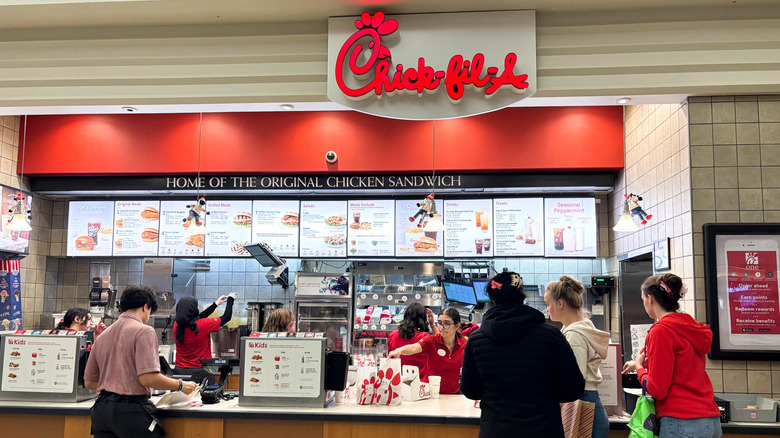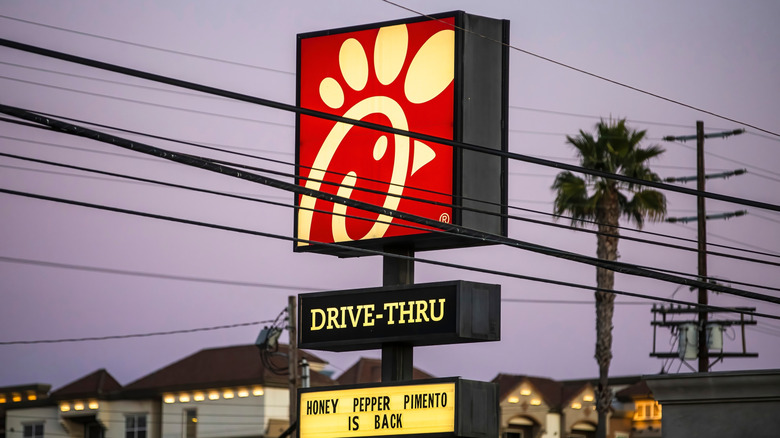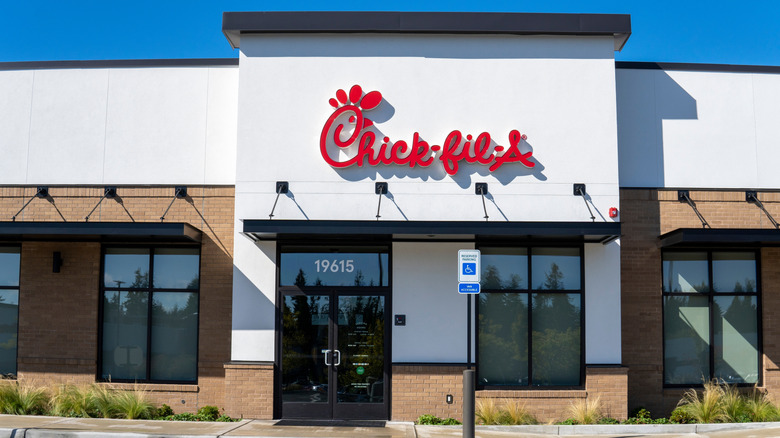How Much Money Chick-Fil-A Franchise Owners Really Make In A Year
Starting a Chick-fil-A franchise requires an initial investment of $10,000, yet the returns can be much higher. The company's Franchise Disclosure Document from March 2025 shows that a typical stand-alone location, open for at least a year, brings in $9.22 million in yearly sales. From that total, the operator gives 15% of all sales and 50% of pre-tax profits back to Chick-fil-A, while the rest stays with the operator. Humphrey Yang, financial advisor and entrepreneur, told GoBankingRates that this setup leaves 5% to 7% of total revenue as the take-home pay for the franchisee of the store.
For a Chick-fil-A location generating $4 million per year, the company claims 15%, equating to $600,000. That leaves $3.4 million. If the restaurant maintains a 12% profit margin, $408,000 remains before the final distribution. Chick-fil-A then takes half of that, leaving the operator with $204,000. Under the same model, a store with $9.22 million in sales pays $1.38 million. A 12% profit margin then yields $940,440, which, when split in half, leaves $470,220 for the franchisee. Still, it is not the same everywhere — some franchise owners make below the $9.4 million average for a typical location. The March 2025 Franchise Disclosure Document reported that the median annual sales volume for 197 mall-based restaurants, open at least a year, was $3.39 million. The average was $4.51 million, but only 34% of mall restaurants made that sum. With that said, results can significantly vary if you are a McDonald's franchise owner.
Why it's hard to buy a Chick-fil-A franchise
While the $10,000 entry fee is reasonable, your individual odds are a different story. Chick-fil-A receives over 40,000 franchise applications and approves only about 75 to 80 new franchise owners every year. This translates to an acceptance rate of less than one in 500 applicants, or 0.2%, making it 18 times more challenging to secure than admission to Harvard.
Chick-fil-A is selective because a franchisee is not buying the business, they're essentially renting it from them. The company builds the restaurant, fills the kitchen, and then lets a franchise owner run the location under its rules. While the franchise owner earns a paycheck, they don't own the building, the equipment, or the land. And when/if they decide to step away, they can't sell the business themselves, or pass it on. Everything instead stays with Chick-fil-A to manage. While this is strict, it's not an unfair exchange considering franchise owners can easily make more than the average American makes in their 30s.
Furthermore, Chick-fil-A notes that being a franchise operator is a full-time job, and the company restricts these operators to a single location while prohibiting ownership of any other businesses. Plus, daily on-site involvement is expected, signaling that this opportunity is not for passive investors. While this policy upholds high standards, it can also deters individuals seeking to manage multiple units, or those hoping to stay behind the scenes.
Potential downsides for prospective franchise owners
While landing a Chick-fil-A franchise can feel like winning the lottery, there can be some downsides to consider. One operator in Atlanta told Business Insider in 2019 that he had to write more than 10 essays, and go through 10 interviews, before being approved. However, even after making the cut, Chick-fil-A maintains control. The company can end a franchise agreement with a 30 days' notice, even without giving a reason. Other thing to consider is that, if a legal dispute does come up, a franchisee must file in Georgia and follow Georgia law — regardless of where the restaurant is located.
Franchisees also must contribute up to 3.25% of their monthly sales to the national advertising fund, and pay monthly equipment rent that can range from $750 to $5,000, depending on the setup. If they miss a payment, the franchise agreement ensures an added 1.25% interest each month until the balance is paid.
Leaving the business also comes with penalties. Whether an operator quits, or is let go, they're required to clear out immediately. Stay too long, and the rent doubles under the "hold-over" clause until they return the keys. Additionally, operators are liable for any store-related lawsuits, from customer slips to wage claims, and must complete approximately 150 hours of classroom and in-store training before assuming control.


